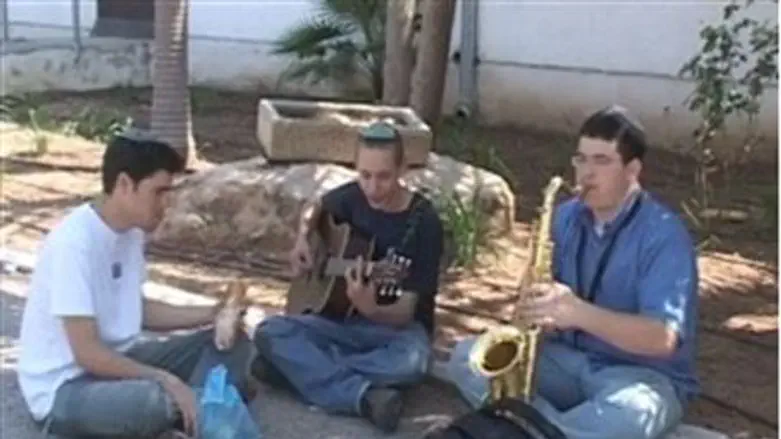
A special day of arts and culture for students of Israel’s state religious schools was held last week in the city of Lod as part of the weeklong celebration of Religious Zionist Education in Israel. The day featured workshops by some of Israel’s top artists in the fields of theater, music, dance, drama, cinema and more.
“It’s time to raise the arts as another tool of expressing a person’s soul,” Rabbi Shalom Markowitz, Head of the Lod Yeshiva High School, told Israel National News TV. “We want to reach a child’s soul. We want to nurture him, to connect to him. Arts are an important tool and it is about time, in my opinion, that the religious education system take advantage of it to elevate the students to the peaks where we want to take them.”
Among the participants was Israeli composer, singer, songwriter, arranger, and choir conductor Shlomo Gronich, whose 2007 album “Journey to the Source” was made up of ancient Jewish texts to which Gronich composed new music. Gronich also created the first choir of Ethiopian youngsters singing their traditional songs.
“The religious public connects to me and I connect to it through the soul,” said Gronich. “They understand my soul. No matter how secular I am, they understand that I speak the truth in my heart. I don’t believe that I could’ve passed an hour of dialogue with youths in the secular sector. There would’ve been a problem there. There is a spirit missing there, there’s kavanah (intent) that’s missing, the connection is missing, the tradition is missing.”
Another participant was Israeli actor, film producer, film director and screenwriter Yehuda Barkan, who starred in many famous movies in the 1970s and 1980s and became a Baal Teshuva (a person who turns to embrace Orthodox Judaism) in the 2000s.
According to Barkan, being involved in the arts is very similar to creating. “Since all of creation is a work of the Creator of the universe, and since the Creator of the universe created man in His image, it’s no wonder that humans also want to sit and create,” he said.
He noted that having the religious public be involved with arts and media is a positive thing.
“Media is part of life and if the religious sector wants to enter the area of media it’s a smart thing to do, because the moment you can pass on your teachings using maximal means, it’s wonderful,” he said. “We see how Rabbi Ovadia Yosef lectures through satellite so that as many people can see it as possible. The only thing we have to be concerned with is that the messages are educational.”